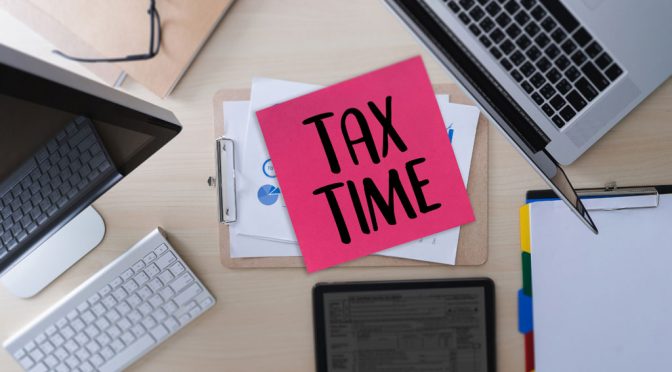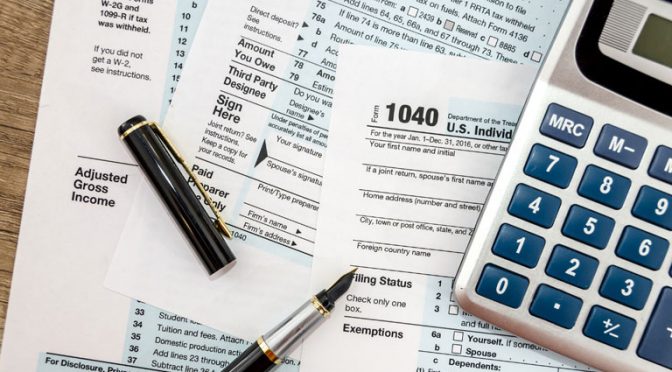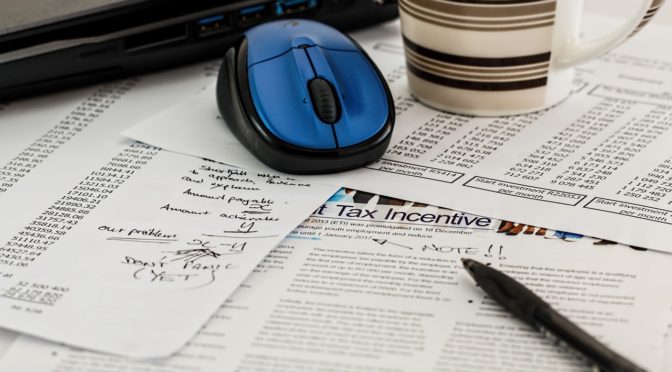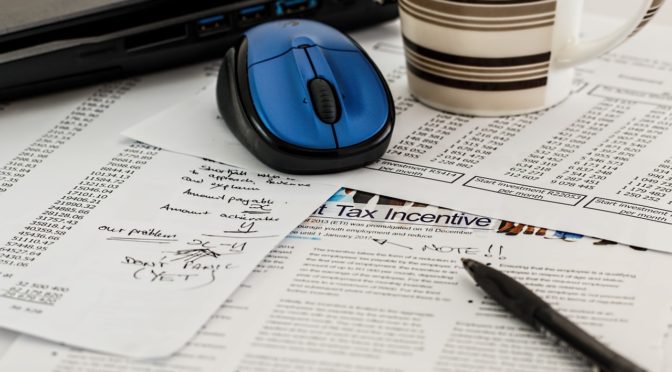–Tax advice for informational purposes only, not intended to be a substitute for advice from your personal tax professional.
Tax time is almost here again. This article outlines ways in which you can diminish your tax liability and take advantage of the many deductions available to Canadian musicians. Knowing what expenses you can deduct from your income and keeping track of your annual income/expenses, along with a file of corroborating evidence, will ensure that you can benefit from tax regulations for Canadian performing artists that will reduce the amount of tax you have to pay.
Most Canadian musicians are considered by Revenue Canada to be self-employed entrepreneurs since they independently contract their services and are classified as operating a music “business” as a sole proprietor for tax purposes. This provides an opportunity to claim deductions against their earned income and reduce their tax liability to Revenue Canada.
Your income as a self-employed musician is claimed on your personal income tax T1 return and your expenses are detailed on an attached Statement of Business or Professional Activities (Form T2125).
Spreadsheets are useful for detailing your income and expenses as well as to support your tax filing.
Canadians are required to claim their worldwide income from all sources on their annual income tax return. If your income was in another currency, you should convert the amounts to Canadian dollars using the rate applicable on date of receipt, according to the Bank of Canada Currency Converter.
You can reduce your tax bill considerably by claiming any business expenses related to your earning money as a musician. Note that you must keep invoices, itemized receipts with the name of the vendor and the date, or even vouchers detailing the expenses. Proof of expenses must be kept for seven years. I’ve listed some allowable deductions to consider in the side box.
GST/HST
Consider registering for GST/HST. Registration is not required unless your income level is $30,000 over the previous 12 months. However, if you voluntarily register, you will collect GST/HST on all Canadian gigs but will be able to claim the GST/HST paid on any items relating to your musical activity and often claim a refund of GST/HST paid. Depending on the volume of GST/HST in your business, you have the option of filing annually, quarterly, or monthly. You can get more information on this from Revenue Canada.
Capital Cost Allowance
Capital cost allowance applies to major music or office equipment or instrument purchases, as well as music reference material (scores, arrangements) and stage wardrobe. These items are amortized over a number of years, i.e., their cost is deducted not all at once but by a certain portion each year, depending on the class of the item.
There are many accounting apps available these days and setting up a simple way to keep track of your income and expenditures will allow you to reap the many benefits available to Canadian musicians under the Canadian tax system.
Robert Baird is President of BAM! Baird Artists Management Consulting in Toronto, and an acknowledged expert in international touring including visas, withholding and taxation. Baird is an AFM Booking Agent and BAM! offers free advice to artists at any time: 1-800-867-3281 or robert@bairdartists.com.
Allowable Canadian Tax Deductions
Office Expenses
- Home expenses (rent, mortgage interest, property taxes, utilities, home insurance, some repairs) based on the amount of space used for your music business
- Rehearsal/rental space
- Postage and courier fees
- Office supplies used for earning income
- Industry-related subscriptions, magazines
- Buying music
- DVDs, CDs, or digital recordings purchased for a specific educational purpose
- Telephone and internet costs
- Streaming services
Travel Expenses
- Flights
- Hhotels
- Uber/taxi costs
- Parking
- Meals while on the road
- Car expenses (gas, insurance, repairs, etc.), check Automobile Allowance Rates at Revenue Canada; be sure to keep a vehicle log.
- Childcare expenses related to absences to earn income
- Entertainment expenses (50%)
- Concerts/live theatre events tickets
Instrument/Equipment Expenses
- Instrument or equipment purchased (but amortized)
- Instrument insurance
- Replacement parts or instrument repairs
- PA or gear rentals
- Performance Expenses
- Wardrobe used in performance
- Cleaning/repairing stage clothing
- Portion of haircuts or styling, make-up used to earn income
- Fees paid to other players or accompanists (subcontractors)
- Agent or manager commissions
- Headshots or promotional photos
- Advertising
- Cost of recording demos
Fees
- Union dues (CFM local)
- Professional association memberships
- Legal and accounting or other professional fees
- Interest on loans taken out for musical purposes
- Agent commissions
La fiscalité pour les musiciens canadiens
par Robert Baird, président, Baird Artists Management (BAM!)
— Conseils fiscaux à titre informatif uniquement, non destinés à se substituer aux conseils de votre fiscaliste personnel.
La saison des impôts arrive à grands pas. Le système fiscal du Canada offre certains avantages aux musiciens canadiens, et dans cette chronique, je tenterai de vous aider à en tirer parti. Savoir quelles dépenses vous pouvez déduire de votre revenu et faire un suivi annuel de vos revenus et dépenses tout en conservant vos pièces justificatives vous garantira de bien profiter des règles fiscales qui s’appliquent aux artistes de la scène canadiens.
Revenu Canada considère la plupart des musiciens canadiens comme des travailleurs autonomes puisqu’ils offrent leurs services de façon indépendante et sont classés comme des entrepreneurs exploitant une entreprise musicale à titre de propriétaires uniques. C’est pourquoi ils peuvent déduire un certain nombre de dépenses de leurs revenus pour réduire leur facture fiscale.
Vous devez déclarer votre revenu de musicien travailleur autonome sur un T1 et y annexer le détail de vos dépenses sur un formulaire T2125.
Maintenez une feuille de calcul financière, cela vous permettra d’inscrire vos revenus et dépenses de façon détaillée au cas où vous feriez l’objet d’une vérification.
Dans leur déclaration annuelle, les Canadiens sont tenus de rendre compte de tous leurs revenus de toute source, d’où qu’ils viennent dans le monde. Si vous avez gagné votre revenu dans une devise autre que le dollar canadien, convertissez les montants en devise canadienne selon la date de leur réception en utilisant le convertisseur de devises de la Banque du Canada.
Vous pouvez réduire votre facture fiscale de façon considérable en déduisant toute dépense professionnelle encourue pour gagner un revenu comme musicien. Notez que vous devez conserver vos factures, vos reçus où figurent le nom du vendeur et la date de l’achat ou même les récépissés avec le détail de vos dépenses. Toutes les pièces justificatives doivent être conservées pendant sept ans. Voici quelques-unes des déductions auxquelles vous avez droit.
TPS/TVH
Envisagez de vous inscrire à la TPS/TVH. Ce n’est pas obligatoire si vous avez gagné moins de 30 000 $ dans les 12 derniers mois; toutefois, si vous vous y inscrivez volontairement, vous recevrez de la TPS/TVH sur tous vos engagements canadiens. Vous pourrez ensuite la déduire sur vos achats liés à votre activité musicale ou même vous la faire rembourser. Tout dépendant de votre chiffre d’affaires, vous aurez le choix de faire vos déclarations une fois par année, aux trois mois ou mensuellement. Pour de plus amples renseignements relativement au processus d’inscription à la TPS/TVH, contactez directement Revenu Canada à inscription à la TPS/TVH.
La déduction pour amortissement
La déduction pour amortissement s’applique à toute acquisition importante de matériel de bureau, de musique ou d’instruments ainsi que de matériel de référence (partitions, arrangements) ou de vêtements de scène. Ces articles sont amortis sur un certain nombre d’années, c’est-à-dire qu’une certaine proportion de leur coût est déduite chaque année. Le montant des amortissements varie selon les catégories de biens amortissables.
Il existe de nombreuses applications de comptabilité. Servez-vous en pour établir un moyen simple de faire le suivi de vos revenus et dépenses, ainsi vous pourrez profiter des nombreux avantages qu’offre le système fiscal du Canada aux musiciens canadiens.
Conseils fiscaux à titre informatif uniquement, non destinés à se substituer aux conseils de votre fiscaliste personnel.
Robert Baird, président de BAM! Baird Artists Management Consulting, à Toronto, est un expert reconnu en matière de tournées internationales, de visas, de retenues à la source et de fiscalité. Baird est un agent artistique signataire de l’entente de la FAM, et BAM! offre des conseils gratuits aux artistes en tout temps : 1-800-867-3281 ou robert@bairdartists.com.
Dépenses déductibles de l’impôt
Dépenses de bureau :
- dépenses liées au domicile (loyer, intérêts sur hypothèque, taxes foncières, électricité, chauffage, eau, assurance résidentielle ainsi que certaines réparations) en proportion de l’espace que vous utilisez pour votre « entreprise » musicale (diviser la surface totale de votre résidence par la surface totale de votre espace de travail)
- location de lieux de répétition
- frais de poste et de courrier
- fournitures de bureau utilisées pour gagner un revenu
- abonnements liés à l’industrie, magazines
- achats de partitions
- DVD, CD ou enregistrements sur Internet achetés dans un dessein éducatif particulier
- dépenses de téléphone et d’Internet
- services de diffusion en continu
Frais de déplacement :
- dépenses d’automobile ((vérifiez les taux des allocations pour frais d’automobile à Revenu Canada) (essence, assurances, réparations, péages). Tenez un registre de vos frais de véhicule.
- dépenses de taxis/Uber
- stationnements
- hôtels
- vols
- frais de réception (50 %)
- repas pendant les déplacements
- frais de garde d’enfants se rapportant aux absences permettant de gagner un revenu
- billets de concert ou de théâtre
Dépenses d’instruments :
- Acquisition d’instruments ou de matériel (assujetti à l’amortissement)
- assurance instruments
- cordes de remplacement et réparations d’instruments
- Dépenses de prestations :
- une partie des frais de coupe de cheveux ou de mises en plis, maquillage utilisé pour gagner un revenu
- vêtements pour prestations
- nettoyage ou réparation de vêtements pour la scène
- sonorisation ou location de matériel
- tout cachet versé à d’autres musiciens ou accompagnateurs (sous-traitants)
- agent ou gérant
- portraits ou photos de promotion
- publicité
- coûts liés à l’enregistrement de « démos ».
Honoraires et frais :
- cotisations syndicales (section locale de la FCM )
- adhésions à des associations professionnelles
- honoraires juridiques, de comptabilité ou d’autres types de professionnels
- intérêts sur prêts contractés pour gagner un revenu comme musicien
- commissions d’agent









